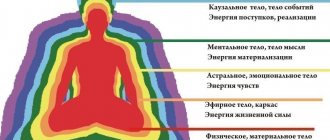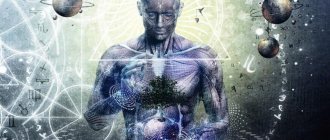A person’s strength is not only his protection, but also a way to find happiness, joy, and the meaning of life.
Why does one always succeed in achieving his plans, while the other faces many obstacles? Someone finds a lot of reasons to abandon their plans, someone starts to act and then quits, finding many excuses. But there are also people who, having conceived something, bring it to completion.
Human strength is an important condition for the successful implementation and completion of intended goals. If it is present, any undertaking will be successful, otherwise some obstacles will always arise.
The lack of vitality affects the quality of our life, and neither water nor food can compensate for it. Human vital forces, which are the combination of nervous and muscular forces, contribute to our harmonious development and existence.
How to develop physical strength
Any kind of sport will help with this. The main thing is that the loads are regular. In addition, proper nutrition is necessary.
It is best to play sports under the guidance of an experienced coach in a specialized school. You can practice at home, but before doing so, it is advisable to consult a doctor.
Unfortunately, human physical strength alone is not enough. In addition, as we age, our capabilities become weaker.
Arguments
- Strong people know how to admit their mistakes.
- Weak people shift all the blame and responsibility onto others.
- Strength lies in the wealth of the soul, the inner world of a person, and weakness lies in spiritual poverty.
- Strong people are able to forgive others. They are generous. And the weak take revenge, weave intrigues, and wound on the sly.
- Strength is manifested in nobility, the ability to create, and weakness is always destructive and aggressive.
- The strength of a person is in his wisdom, in knowledge.
Inner strength
A person’s inner (spiritual) strength helps him adhere to his point of view, defend a certain opinion, despite external influence. Such people are determined, persistent, and purposeful, which helps them achieve success in achieving their goals without deviating from the intended path.
A person’s inner strength is the totality of his energies (vital energy, willpower, fortitude, mental energy and self-control) and the ability to manage them.
If you can determine whether you have physical strength right away, spiritual strength is not always visible; it usually manifests itself unexpectedly. A person with inner strength will not be hindered by material difficulties, physical weakness, or age in achieving what he wants.
The main reason for the loss of inner strength is fear. To overcome it, you need to develop self-confidence and learn to do what causes fear.
Diaries that change lives:
Vedeneyeva's diaries. 52 weeks: 52 weeks to monitor yourself
990 rub.0 rub.
Varvara Vedeneeva
0 pcs.
Vedeneyeva's diaries. 52 weeks: 52 weeks to monitor yourself
- Hardcover 990 rub.
Vedeneyeva's diaries. 75 questions: Questions for self-knowledge
990 rub.0 rub.
Varvara Vedeneeva
0 pcs.
Vedeneyeva's diaries. 75 questions: Questions for self-knowledge
- Hardcover 990 rub.
Vedeneyeva's diaries. Challenge book: A notebook for putting things in order in your life
990 rub.0 rub.
Varvara Vedeneeva
0 pcs.
Vedeneyeva's diaries. Challenge book: A notebook for putting things in order in your life
- Hardcover 990 rub.
Vedeneyeva's diaries. Gratitude Diary: 1000 reasons to be happy. Gratitude journal
990 rub.0 rub.
Varvara Vedeneeva
0 pcs.
Vedeneyeva's diaries. Gratitude Diary: 1000 reasons to be happy. Gratitude journal
- Hardcover 990 rub.
The power of faith
In achieving one or another goal in life, this force plays an equally important role. Lack of faith in life hinders the growth and development of personality, prevents the achievement of harmony and happiness. A person who is confident in his abilities can achieve a lot.
Fear and doubt become a serious obstacle on the path to the desired goal. Very often, minor obstacles force a person to abandon his plans. But thanks to the ability to accept the result, no matter what it turns out to be, and to perceive mistakes as a new experience, a person develops an unshakable desire to achieve the intended goal.
Fear and doubt are the result of mistrust, reluctance to change something in life, and worries that not everything will work out. Therefore, in any endeavor, it is so necessary to have faith that everything planned will certainly come true. Many people prefer to dream for a long time about a bright future, but never dare to do anything to achieve their goal due to the fact that there is no confidence in the result, and also because they do not want to be responsible for their actions and their consequences.
To learn to believe, you need a lot of internal work on yourself, overcoming many obstacles and changing your beliefs. This is easier for children, so they easily get what they want.
By believing in something, allowing it in our thoughts, we become able to make what we want into reality. This is what explains the cases of healing from incurable diseases and the extrasensory abilities of people.
It has been proven that the power of faith can have a specific physiological effect on a person. For example, the placebo effect, when tablets that do not contain any active substances act better than real medications due to a person’s confidence in their healing properties. The mind, expecting healing, initiates physiological processes that help restore health.
Pay attention to yourself
The author of the book “The Magic of Psychotherapy” Irina Belousova believes that now it is very important to sublimate your emotions. Try different things: draw, take care of your figure, start cooking, do exercises or stretching, sing, get a manicure and do not deny yourself small joys. Find activities that help you decompress.
Do something that you have been putting off for a long time, for example, go through a check-up. Pay attention to your home, make sure you feel good and comfortable in it. Travel is now in question, but all the more reasons to jump into domestic tourism: start planning future trips.
What our thoughts are capable of
According to many modern researchers, human thought is a material phenomenon - energy. It has been proven that at the moment of strong emotions, the thoughts that come into our heads throw vibrations into the surrounding space, which can affect the course of events. That is, if you have a strong desire, there is a chance that your plan will come true. And for greater effect, you need to learn to use the power of thought, visualizing what you want.
Master Meditation
Meditation is a core mindfulness training practice. Regular exercise reduces anxiety, improves focus, clears the mind and reduces the risk of heart disease. The main thing is that you can start with 3-5 minutes a day. You can meditate standing, sitting, on the go, in a quiet room or on the subway - choose the practice for yourself.
Eddie Puddicombe, creator of Headspace and author of the book Meditation and Mindfulness, speaks best about the practice of meditation. In the book, he talks about how to start meditating, what to do if you can’t keep your focus, and how just 10 minutes a day will help you become more mindful.
How the power of thought works
Thoughts that are constantly present in a person’s head become his beliefs, which, forming internal images in our brain, thereby materialize the objects of dreams.
A thought can bring not only benefit, but also harm. Therefore, it is necessary to be able to control your thoughts and not wish harm to others. The power of a person’s thought, having punished the offender, can return to the owner with the opposite effect.
We can attract more than just good things. For example, as soon as the thought of self-doubt arises, it immediately undermines our faith in our strengths, we step back. Unfortunately, people are more inclined to believe negative thoughts. Therefore, you shouldn’t get hung up on them; this can distance us from our intended goal.
Epithets for the word weakness
Minute, feminine, shameful, great, treacherous, any, senile, special, unforgivable, definite, muscular, simple, cottony, childish, nasty, serious, shameful, external, bodily, large, second, unhappy, apparent, personal, fleeting, ordinary, comparative, heartfelt, political, obvious, small, imaginary, sudden, extraordinary, painful, alien, mental, military, inadmissible, basic, innate, stupid, temporary, permanent, relative, fatal, physical, easy, irresistible, known, instant, sexual, current, inexplicable, wild, eternal, small, female, secret, irresistible, economic, incomprehensible, spiritual, human, nervous, disgusting, main, mental, frank, general, extreme, incredible, sharp, natural, own, internal, terrible, unexpected, recent, similar, extreme, damned, unpleasant, yesterday, strong, small, blissful, only, obvious, male, terrible, monstrous, criminal, mental, natural, strange, incredible, psychic, terrible, strange, pleasant, moral
Where do our energies flow?
Unfortunately, we waste a lot of vital energy. A person’s strength, his energy is spent on outbursts of both negative and positive emotions, depression, self-flagellation, criticism of both others and himself.
No less energy is spent on unnecessary chatter. It’s not for nothing that after heated arguments we feel empty. In addition, endless internal dialogues are a waste of energy.
Motor energy is hampered by muscle tension that arises from a sedentary lifestyle and heavy loads. By removing bodily pressures, we influence the psyche, harmonizing it.
How to gain vitality by working with future events.
Most of us have at some time been in a situation where some important event that is about to happen takes up a significant part of our attention. A large number of things that need to be done in the near future also take away a significant part of our human vital force (VHF).
First of all, you need to rank your actions in order of importance.
Then, you need to set a time for performing your actions, taking into account the degree of importance of each task and the possible time for its completion.
Until a plan is drawn up for performing your actions, indicating the time for their implementation, your brain will be busy predicting all sorts of execution options and their combinations. Accordingly, the brain will continuously spend a large amount of vital force in the MNR (the moment of present time) on working through these options. Even if it’s just one thing, the brain will waste vitality until you set the exact time to complete this task.
When, on a drawn up plan, all actions are distributed on the time axis (the time for each action is assigned), the brain stops wasting vitality on predicting the possible order of performing your actions.
When the execution of your actions is not distributed along the time axis, the situation with your “neurocomputer” will resemble a similar situation with a personal computer, when several working “windows” are open on it at once. All your actions that are not distributed on the time axis will occupy the RAM of your “neurocomputer”. RAM is used to solve current problems.
After distributing your actions on the time axis, they are rewritten into permanent memory sections, with a designated time for their execution. RAM is freed up for efficient processing of current information. Extra “windows” are closed. The speed of information processing (vital force) in the current MNVr (present time) increases. This is what was required.
Take the time to draw up a plan for carrying out the necessary actions, and you will feel the release of a significant part of the life force.
It happens that a situation arises when we are worried about one event that should or may happen in the future. But, due to the lack of necessary information, we cannot accurately predict the further development of this event. This causes a feeling of uncertainty, that is, the brain constantly spends vitality on possible options for the development of this event.
First of all, you need to find out:
- What needs to be done to make this event successful;
or, if a possible event is undesirable, then: what needs to be done to prevent this event from happening.
- Distribute the actions necessary for this on the time axis (assign a execution time for each of them), taking into account the degree of importance of each action relative to the others.
Further, so that the brain does not waste a person’s vitality on predicting possible options for the development of this event, it is necessary to draw the following conclusion:
At this point in time, everything necessary has been done. New actions will be taken when new information about this event becomes available. Without new information, it is impossible to predict the exact development of this event.
Next, think about this upcoming event, and say (mentally) this conclusion.
Repeat this three to four times.
After the work has been done, the brain will stop wasting vitality on processing this event, and will return it to your disposal.
Don't forget that our brain is designed to process any information that comes into it. The rational functioning of your brain will be determined by the form in which this information arrives, that is, how this information is processed.
All methods that allow you to increase the level of vitality are described in more detail in the article “HOW TO INCREASE TONE AND VITAL ENERGY.”
How can you replenish lost strength?
The most effective remedy is proper sleep, as well as various types of massage and thermal treatments. This cleanses internally and externally: toxins are removed, fatigue is relieved, and a boost of energy appears.
In addition to rest for the body, rest is also necessary for the soul, which will bring peace and harmony. This is facilitated by music, dancing, walking, art. Travel and new experiences are very useful. It is important to remember what brings you pleasure and joy, and turn to it more often. A person who lives to the fullest, does something that requires knowledge and skill, feels joy.
In addition, you need to try to identify the sources of fatigue and understand your own level of satisfaction with life. Most often, a lack of internal strength causes mental tension and resistance.
To gain strength, you need to make an effort and spend a lot of time. You shouldn’t think that this will happen right away; you need to work on yourself throughout your life.
Structure your day
Routine keeps us on our toes. Take everything we discussed above and put it on your schedule. Create a morning ritual, such as setting aside time to read, exercise, and prepare breakfast when you wake up. Another idea: a little reflection at the beginning and end of the day. Come up with your own questions or use the tips from the “6 Minutes” diary: just 3 questions in the morning and evening that will help you look at life differently and live it more consciously.
Any changes to the schedule will be difficult at first, but such rituals are part of our support. It is useful to plan a vacation or leave one day completely empty to allow yourself to live it slowly and consciously do what you want right now.
Arguments from literature
- L. N. Tolstoy “War and Peace.” The epic novel “War and Peace” by the great master of prose L.N. Tolstoy is a work for all times. Each generation of readers discovers something of their own in him, interesting for him and his contemporaries. Among the many heroes of the novel there are both positive and negative. You want to look up to some people, take them as an example, while others are repulsed by how vile their actions and words are. M.I. occupies a worthy place among the characters. Kutuzov is a great Russian commander. For readers, this is a kind, decent, strong person. In my opinion, his strength lies in his wisdom. In his attitude towards soldiers and officers one can sense experience and insight. He understands that victory in any battle depends primarily on the mood of the army, therefore, both at Braunau and before the Battle of Austerlitz, Kutuzov takes care of raising the morale of the army, he worries about whether the soldiers are eating well, what their uniform is. Shortly before the Battle of Austerlitz, the commander is annoyed, as he already sees the outcome of the upcoming battle and worries about the soldiers who do not understand what and why they must defend. He feels the mood of the soldiers and the entire Russian people even before the Battle of Borodino, he keeps the army from useless battles in order to save the lives of soldiers and officers. He is never in a hurry in his actions, believing that this can harm the business. “You can’t pick an apple green, you can harm both the apple tree and the apple, and set your teeth on edge,” the commander believed. Life experience and wisdom give him strength and confidence in his rightness, which is why he achieves his goals, confidently controls the army, and is known in society as a “sly fox,” but still a talented commander. That is, the example of M.I. Kutuzova proves that human strength truly lies in wisdom. The wiser a person is, the stronger and more confident he is.
- M.A. Bulgakov "The Master and Margarita". Can a person be strong who is not afraid to speak the truth and even believes that speaking it is easy and pleasant? Undoubtedly, many would answer this question positively. Reading the novel “The Master and Margarita” by M.A. Bulgakov, we also come to the same conclusion. One of the main characters of the work is a wandering philosopher whose name is Yeshua Ha-Nozri. Kind, gentle, generous, he loves the truth. Yeshua does not even understand how one can say something that does not correspond to the truth. This destroys a person, his personality. He considers everyone kind and decent. Both Pontius Pilate and Mark the Rat Slayer are good for him, despite the fact that one of them did not pardon him, and the other carried out his execution. Ha-Notsri, even to save his life, is not inclined to lie, although, it seems, he understands all sorts of hints from the procurator. He honestly and openly answers all of Pontius Pilate’s questions, without hiding anything or prevaricating, which surprised the procurator of Judea, who had seen a lot in his time. Pontius Pilate was accustomed to the fact that many people flattered him, looked into his eyes devotedly, tried to predict the course of his thoughts or actions in order to please, but Yeshua behaved differently: he did not ingratiate himself, did not flatter, he was open and calm. He felt confidence and inner strength, which both irritated Pontius Pilate and frightened him. The procurator of Judea, on the contrary, appears before the readers as a weak person. His weakness is cowardice. He fears for his position in society. Despite the fact that Pontius Pilate fell in love with the young wandering philosopher, he did not dare to justify him, because he was afraid of losing the benefits that he had. He, the fifth procurator of Judea, is afraid to take responsibility for the future fate of Ha-Nozri, so he shifts the issue of pardon onto the shoulders of the Sanhedrin, hoping that it will have mercy on Yeshua. But that did not happen. So, M.A. Bulgakov argues that a person’s strength lies in truth, in confidence in his own rightness, and weakness lies in cowardice.
- M.A. Bulgakov "The Master and Margarita". Pure, sincere, all-consuming love is a priceless gift of fate, which, alas, not every person is destined to receive. Love is capable of various miracles. It endows any person with remarkable strength, making him capable of not only withstanding various difficulties, but also defeating them. The immortal novel “The Master and Margarita” by the great master of prose M.A. Bulgakova confirms this idea and convinces us of its truth. The Master and Margarita are the main characters of the work. Before they met, they lived their own lives. Margarita had a prosperous life: her husband was a high-ranking official, an apartment with a housekeeper. The master served in the museum. But one day he won a large sum of money in the lottery, quit his job, rented a small apartment from a developer and began writing a novel about Pontius Pilate, the procurator of Judea. It was at this time that he met Margarita on a deserted spring street. Love struck them down at first sight, like a “hired killer.” The beloved came to the Master every day, inspired him, read what he wrote and admired his talent. And when the book was written, criticism fell upon the Master with all cruelty and misunderstanding, driving him to a psychiatric hospital. Left without her beloved, Margarita almost went crazy. Her whole life lost meaning for her, there was no joy. She searched for him for six months and could not find him anywhere, as if the Master had fallen through the ground. And when unknown people suggested that she sell her soul to the devil in order to save her beloved, Margarita agreed. She became a witch. Love endowed a woman with enormous strength and deprived her of fear. She was not afraid of being a witch, playing the role of Satan's ball queen. A wild force awakens in her even when she destroys the apartment of the critic Latunsky, because of whom the Master disappeared. She is not afraid to give up a luxurious life, a loving husband, and a cozy home. Margarita steadfastly endures all the hardships of being the queen of the ball. She is not afraid to step into the unknown. She is a strong woman, and strong with her love. Margarita receives eternal life with her lover as a reward and becomes an ideal to be followed by many loving people. You can never give up without a fight the one you love and who loves you. Because the one who loves is incredibly strong and will be able to pass all the tests and become happy.
- V. Bykov “Sotnikov”. A cowardly person is always weak, since cowardice generates fear in his heart, which paralyzes his will, desires, and confuses his thoughts. Such people lose the ability to think adequately and become vulnerable. Courageous people are strong because they have resilience and courage that does not give them the opportunity to give in to life's circumstances. Undoubtedly, we find confirmation of this idea on the pages of our favorite works. Interest in the books of V. Bykov, who walked the roads of the Great Patriotic War, is still enormous. In the story “Sotnikov” he talks about two Belarusian partisans - Sotnikov and Rybak. One day they had to go together to the village to get food for a small partisan detachment. Sotnikov was sick and weak, but did not refuse the task. As he later explained to Rybak, because others refused. The comrades are completely different in spirit. The first one joined the detachment at the behest of his heart, for ideological reasons. He is not physically strong, but his spirit could not be broken by anyone or anything. The fisherman comes from a peasant family. He has great physical strength, is strong, resilient, but he does not have such an internal core as Sotnikov. When, returning from a mission, they are captured by the Germans, the former peasant becomes a traitor, he is afraid to die. Wanting to save his life and avoid a painful execution, he testifies, thinking that he can outsmart the police, and then agrees to cooperate with them, justifying himself by saying that he will receive valuable information that can be transferred to the detachment. But the more he talked, the more confused he became. Cowardice drove him into a trap, which slammed shut when the police appointed him to execute Sotnikov, whom no amount of torture could break. He did not give up his comrades, did not betray them, because he understood that he would be killed. He remained faithful to his ideals, comrades, and common cause. Thus, a person’s courage lies in courage and perseverance, and weakness lies in cowardice.
- V.A. Zakrutkin “Mother of Man”. Human strength lies in generosity. This invaluable quality of character helps to endure all life’s difficulties and not give in to the blows of fate. Tale by V.A. Zakrutkin’s “Mother of Man” is a vivid example confirming this idea. The writer on the front road became an involuntary witness to the incident that he describes in the work. During the Great Patriotic War, the Nazis mercilessly burned a small steppe farm, the inhabitants were taken captive, Ivan and Vasyatka, the husband and son of the main character Maria, were hanged from an old apple tree on the outskirts of the farm. Only Mary escaped by hiding among the tall stalks of corn. She needed to live in the name of her unborn child, who invisibly connected her with her husband and son, executed by the Germans. On the first day, cows approached Maria, then a dog appeared, a thunderstorm for the entire farm. The woman decided to settle in the surviving cellar, where she found a wounded German, young Werner Bracht. Seeing him, Maria raised a pitchfork at him to take revenge for all the evil that the Nazis had done, but a short word “mother” made her abandon this plan. She not only did not kill the German soldier, but also looked after him, trying to cure him and put him on his feet. When he finally died from his wound, Maria buried him. She never remained idle for a minute. The woman felt responsible to the entire farm, so she harvested the crops left in the fields: she collected corn, dug up potatoes, and beets. Maria takes care of the cattle, which are increasing in number, since sheep came to the burned farm, chickens and pigeons returned, and horses settled in. She looks after everyone, feeds them, gives them water. And then in the steppe she finds seven hungry orphans from a Leningrad orphanage, for whom she becomes a real mother. Maria gives all the warmth of her heart to them, the children who have become family to her. Her spiritual qualities help her survive difficulties, save orphans, work for the good of her people, and give birth to a son named Vasily in honor of her deceased brother. Mary's spiritual beauty and purity are so great that they endow her with incredible strength, perseverance and courage.
- L.N. Tolstoy "War and Peace". With the heroes of L.N. Tolstoy is familiar to many fans of the classic of Russian literature. For several centuries we have been reading his works, finding in them not only answers to all questions, but also our idols, ideals to follow. In the epic novel "War and Peace" there are heroes of amazing purity, kind, merciful and strong. They are better than others able to resist everything vile, evil, unkind, and can warm and support in moments of life’s troubles. Their incredible strength lies in their spiritual qualities, in their heart of gold. We include Marya Bolkonskaya, the sister of Prince Andrei Bolkonsky, among such heroes. We will not meet her in any secular salon in St. Petersburg, we will not see her in any fashionable house or famous living room... She lives almost always with her father in the Bald Mountains. The princess does not have striking beauty, she is ugly, but her bottomless radiant eyes, which immediately attract attention, express all the beauty of her soul. Princess Marya is very kind. She cannot help but help wanderers, holy fools and beggars, knowing full well how important her help is for them. She found solace in them. This was the only thing in which she disobeyed the old prince: her father drove away “God’s people,” and Marya secretly received them. She steadfastly endures the whims of her father, the old Prince Nikolai Bolkonsky, a stern man with a difficult character. But the girl is not offended by him, but loves him and deeply respects him, justifies the outbursts of his causeless anger. No longer dreaming of marriage, she decides to devote her life to serving her family and friends: first her father and brother, then her nephew Nikolenka, who was left an orphan. But even when her fate was decided and Princess Marya married Nikolai Rostov, she did not abandon Nikolenka, but raised him as her son, she also helps her husband in solving his financial problems left after the death of his father, Count Rostov. Her example shows that a person is strong with his moral qualities, which not only help to withstand all the blows of fate, but also help others, those who need protection and care.
What is will
Will in psychology is one of the functions of the psyche, manifested in the ability to make conscious decisions, think and act in accordance with them.
It is an active, intentional process versus automatic reactions to the environment. I will give an example that will clearly show the difference between one and the other.
Imagine two people with short tempers. They understand that this trait causes them a lot of inconvenience: frequent conflicts in the family, at work, and in the company of friends. Both decide to change the situation by learning to control their anger.
One of them successfully copes with the task: reads relevant literature, goes to meetings with a psychologist, forcibly forces himself to stop the emotions that arise, controls his behavior and speech. The second continues to live on autopilot, lashing out at others over trifles, despite the decision made earlier (which he may have completely forgotten about).
What makes these fictional characters different? Why did their results turn out to be completely different, given that they initially wanted the same thing? After all, the will, as a mental function, is present in any person (we walk, brush our teeth, work), but in reality it turns out that it “works” differently for everyone.
From here the next concept smoothly follows - willpower.
Epithets for the word man
Smart, stupid, rude, kind, generous, decent, responsible, honest, literate, illiterate, soulless, generous, purposeful, mysterious, formidable, sincere, passionate, inconspicuous, creative, creative, talented, lazy, hardworking, diligent, blissful, unpleasant, tall, short, thick, thin, neat, sloppy, wild, sharp, unique, terrible, great, heartfelt, painful, monstrous, serious, cheerful, sad, lonely, family, single, mediocre, understanding, truthful, deceitful.
Volitional qualities of a person
For a more precise understanding of what will is, let us outline its main features, which are also called volitional qualities:
- Determination is a person’s ability to set a specific goal and actively strive to achieve it.
- Decisiveness is immediate but deliberate action that implements the decision made.
- Perseverance is an internal quality that simultaneously strengthens the will. This is following the intended plan, despite obstacles and defeats.
- Self-discipline is conscious submission to established requirements, norms and rules.
- Self-control is the ability to control your emotional and behavioral manifestations.
- Courage is the willingness to overcome the fears that often accompany achieving a goal.
- Independence is the ability to rely on one’s knowledge, principles, values and take responsibility for one’s actions.
These qualities are inherent mainly in adults, mature people, but not in everyone. Many, being great uncles and aunts, continue to be childishly infantile: they are afraid to make decisions, throwing responsibility for their lives onto stronger, strong-willed people around them.











